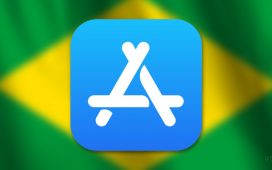Hey Siri, were you spying on me?
Apple has agreed to pay $95 million to settle a proposed class action lawsuit that claimed Siri, the voice-activated assistant, was unintentionally activated for tens of millions of users, infringing on users’ privacy.
The preliminary settlement, which was filed Tuesday in the Northern District of California, requires a federal judge’s approval. Should it move forward, it will put an end to the six-year-old legal dispute and pay out customers who believe they were impacted.
Here’s what we know, including how to submit a claim.
What was the Apple lawsuit about?
In August 2019, the Wood Law Firm — a firm specializing in class action suits — filed a complaint claiming that Siri was recording users’ conversations without them knowing.
The complaint came on the heels of an article published by the Guardian that detailed how Siri was being triggered to listen and record beyond when invited.
A 2014 software update from Apple was supposed to activate Siri when a user said “Hey, Siri.” The Guardian‘s story said Siri was actively listening at other times to improve Apple‘s technology and to inform third-party contractors.
The article and consumers criticized an Apple program that let contractors review small portions of things people said to Siri to help its software improve.
There were also allegations that the recorded conversations were being passed along to advertisers, which Apple has denied.
Who was impacted?
Tens of millions of U.S consumers who owned Apple devices using Siri from Sept. 17, 2014, through the end of last year may have been impacted.
Apple devices that are Siri-enabled include iPhones, iPads, Apple Watches, and more.
What has Apple done since the allegations came out?
In response to the Guardian article, Apple released a formal apology in 2019, pledging to stop using recordings. Still, it pushed back against claims that the company was feeding that data to advertisers.
Who is eligible for settlement money?
The estimated tens of millions of Apple users with Siri-enabled devices who believe Siri was unintentionally activated between Sept. 17, 2014 and Dec. 31, 2024, can file claims to be eligible for a settlement payout.
Siri-enabled devices include: iPhones, iPads, Apple Watches, Macs, HomePods, iPod touches, and Apple TVs. Users must swear under oath that Siri was unintentionally activated on their device.
How much money can impacted Apple customers receive?
Submitters can file claims for up to five Siri-enabled devices. If they’re approved, the settlement payout will be capped at $20 per device.
The amount someone receives will depend on the number of claims submitted and how much of the $95 million settlement fund is reduced to cover legal fees and costs. A claims administrator estimated that only 3% to 5% of eligible consumers will file claims.
How can I submit a claim?
Some eligible Apple device owners have already been notified of the settlement and received a claim identification code. But anyone who believes they’re eligible can apply, regardless of if they received a notice.
To apply, visit www.lopezvoiceassistantsettlement.com. From there, you’ll be prompted to submit a claim. You’ll be asked to provide device serial numbers, proof of purchase, and information about how you’d like to receive payment. You’re required to swear by oath that Siri was unintentionally activated on any device you file a claim for.
The deadline to submit a claim is July 2.
I‘m over this. How do I disable Siri on my Apple device?
You can turn Apple‘s virtual assistant off by following these steps:
-
Navigate to Settings, and go to Siri
-
Under “Talk to Siri,” click “Off”
-
Toggle off “Allow Siri When Locked”
You can also disable individual apps’ access to your iPhone’s mic by doing the following: Navigate to Settings (select the app), then toggle off Microphone.
The Associated Press contributed to this report.







